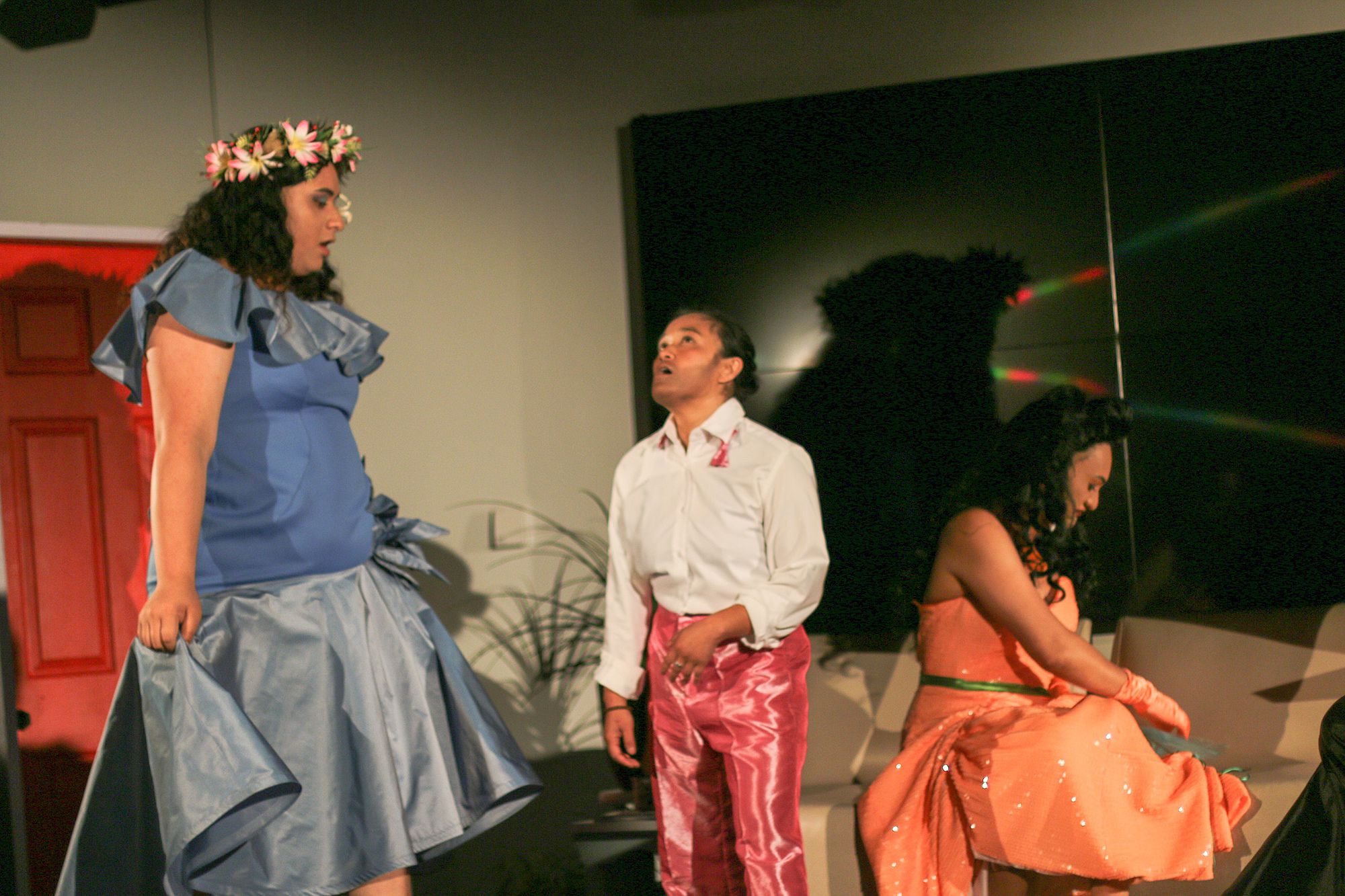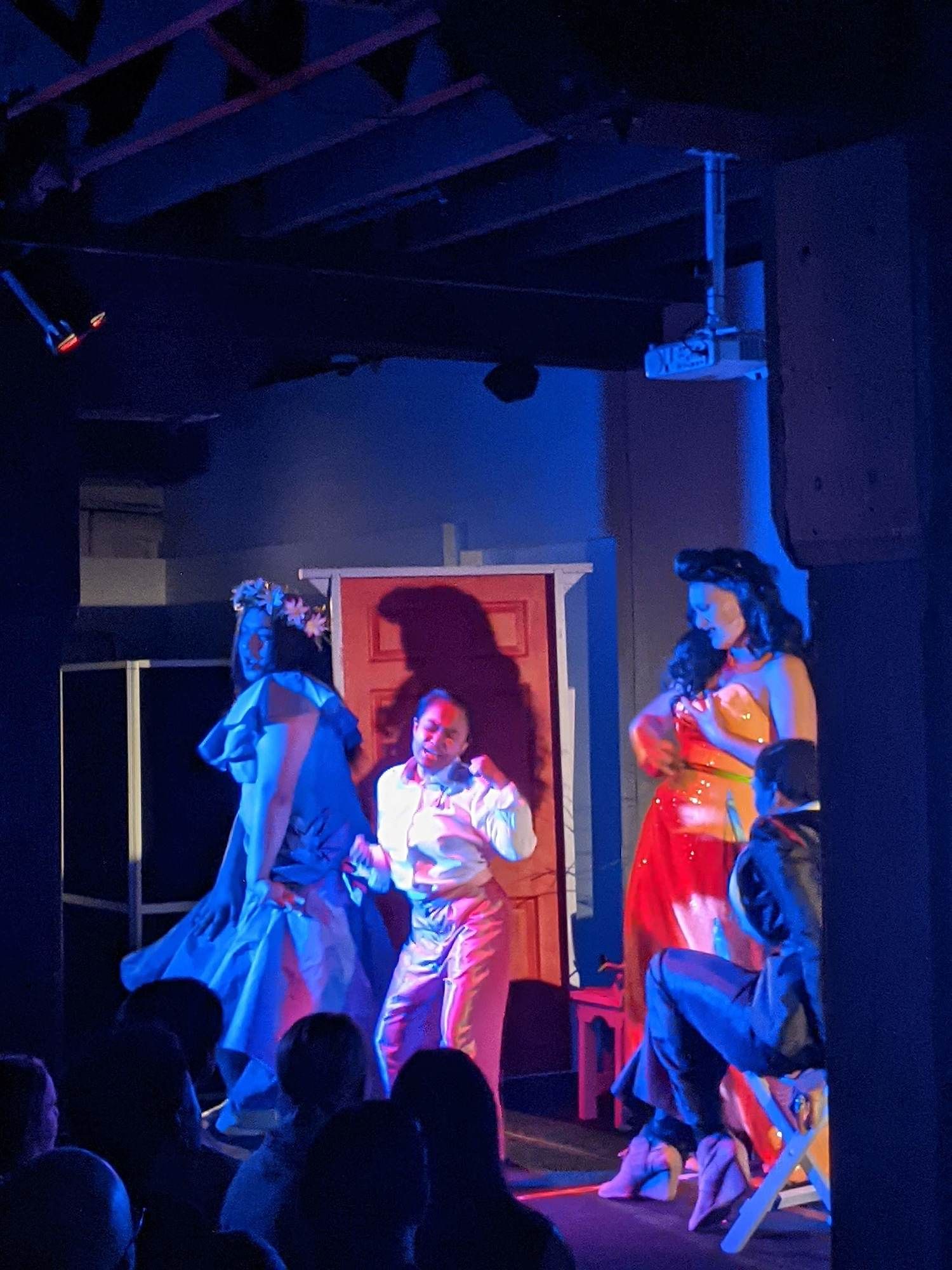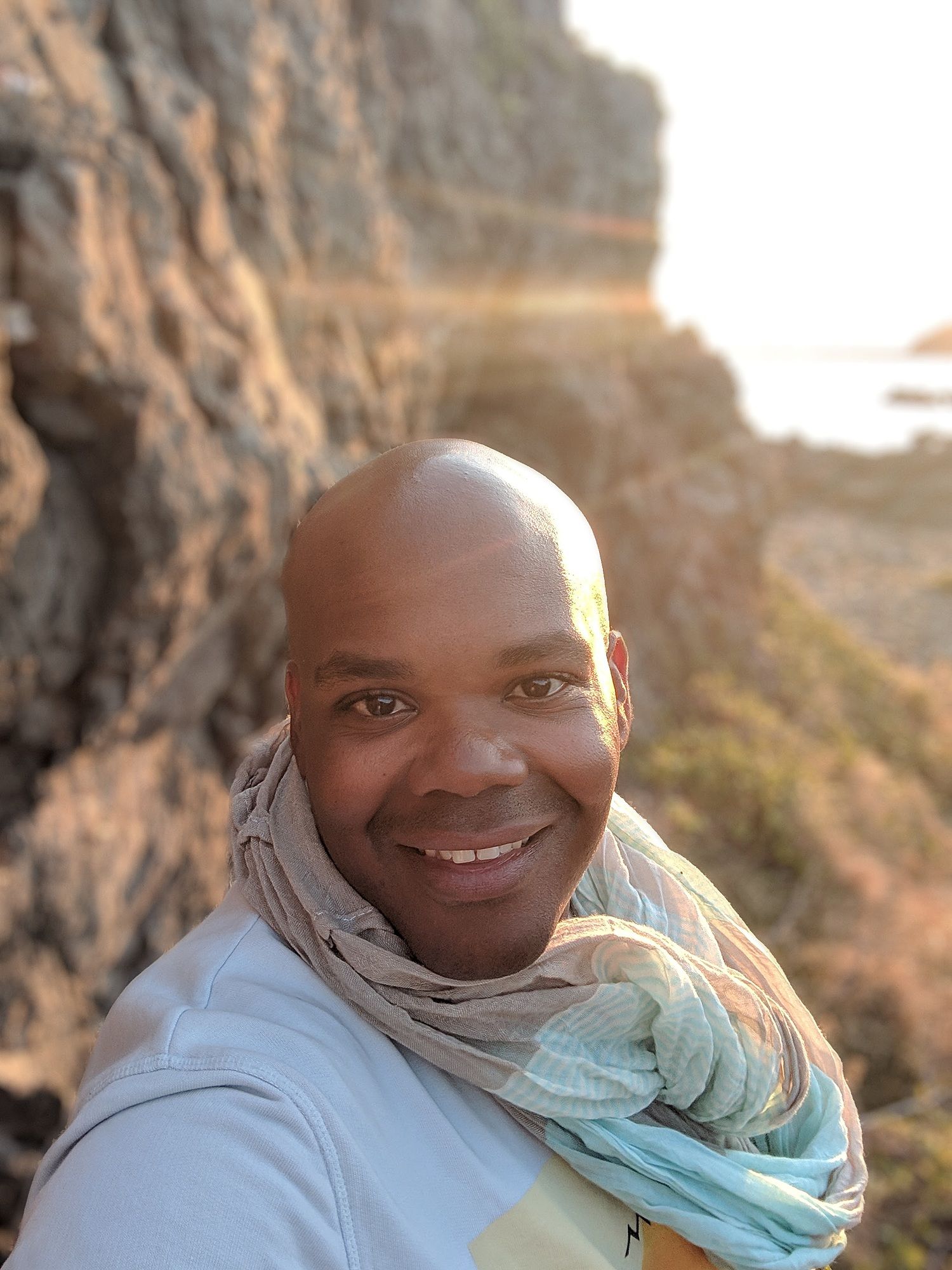You Will Not Erase Us
Octavius Jones on finding a sense of place in this play by a cast and crew who identify as Queer/LGBTQI+, Black, Indigenous and POC.
Even in this age of visual-media saturation, young, Queer and BIPOC individuals still echo their elders' sentiments from just a few decades ago, “Where can I see myself in all these images, who represents me, where is my place in this world?”
Before home computers, I would go to the public library and look up information on anything related to gay people. Queer was not a term I knew or had heard used. Gay and lesbian seemed to be the far reaches of sexual exploration and deviancy. I often found as much information trying to convince you not to be gay or lesbian as I did accounts of the lives of Queer people. There was no watching RuPaul’s Drag Race with family members, being out in public or using TikTok as a non-binary, Queer or Trans-identified person.
I was taught to swallow the works of Shakespeare and Tennessee Williams. Characters and language completely foreign to me as a Black, Queer person, yet if I did not master their language, experiences and internal meaning, I would be deemed illiterate and incapable of critical thought. To enjoy mainstream art, I must leave myself at the door. This is the reality for many Queer and BIPOC people 30 years of age or older. As we celebrate Wellington Pride, it is within that historical context and complex reality that The Eternal Queers is presented.
The Eternal Queers is a new show premiering at the Wellington Pride Festival with the support of Wellington Pride Theatre Production. The original concept was developed by executive producer Chinwe Akomah, who has amassed a stellar team in scriptwriter Estelle Chout and director Krishna Istha. Presumably a first in Aotearoa, the cast and crew predominately identify as Queer/LGBTQI+, Black, Indigenous and POC. When I went to see The Eternal Queers at Te Wheke Wellington Museum, a smaller venue that allowed for intimacy between actors and audience, it was sold out.
.
The show is set in the future, 2079 to be exact, and the four stars are real-life Queer icons of colour (all trailblazers in their own countries) who are in Level A of the afterlife – the top tier, reserved for important people who have passed on. Each year in the afterlife, there is a prestigious event, the ABALL (Annual Ball for Awesome Legacy Leavers). The play begins with a voiceover that brings each of the four main characters onto the red ball carpet. We see a flash of strobe lights as we get our first glimpse of each character.
Carmen Rupe, the first iconic drag queen in Aotearoa, was born in Waimiha in 1936. In 1967, after returning from Sydney, she opened Carmen’s International Coffee Lounge in Wellington. Her Wellington mayoral run in 1977 championed legalised prostitution, and the decriminalisation of abortion and homosexual acts. Trans Māori actress, singer and cultural advisor Selena Pirika delivers the character of Rupe to great comedic effect, often the catalyst for lightening the mood through well-placed humour. She wields a dildo throughout and the laughter from the audience is evidence of its effectiveness as a prop, particularly during the moments where each of the characters gets a chance to recount the pain they’ve endured from prejudice, violence and harassment. I won’t give anything else away because the fun is in seeing Pirika in person.
Something occurs at the ball. There is an altercation between the four characters, and the second scene is revealed. The characters find themselves inside a room, clothes torn and dishevelled. The questions that propel the play forward from then on are: Why them? Why can't they leave? And what will happen to them?
The characters' banter converges, as they try to figure out why they were removed from the ball and put in this room. It brought up so many emotions for me, as I was reminded of sentiment heard over the global pandemic lockdown. People wondering how we got here and why we had to be confined in our homes or rooms. I felt the echoes of Black people in the United States and Māori youth, in particular, questioning their over-confinement by police in our communities.
These changes have been hard fought for by the warriors of yesteryear – Rupe, Shunsheng, DeLarverie and So‘oalo To‘oto‘oali‘i
Stormé DeLarverie, played by Black, Hawaiian-born Queer author and actress Nahi Mahal says as much as this during the show, questioning whether she really is a perpetrator of violence and worthy of being confined when she was the one who felt threatened and attacked at the ball. The real-life DeLarverie was born in New Orleans, Louisiana, in 1920. Though most known for her involvement in the Stonewall Uprising, from the 1980s through the 1990s DeLarverie worked as a singer and a bouncer in New York City who stood against late-night anti-gay and anti-Black harassment and violence.
So‘oalo To‘oto‘oali‘i Roger Stanley, played by Sāmoan fa‘afafine student Maurice Tupua-Wilson, is affectionately called Mama Ro in the play. In real life, So‘oalo founded the Sāmoan Fa‘afafine Association in 2006 and worked with the United Nations on gender-based discrimination. Tupua-Wilson plays a character in The Eternal Queers that seems to take a more diplomatic approach to their confinement. She takes the stance of a parent who has found their children in trouble and asks them what they did to necessitate punishment. Although Mama Ro was at the ball, she didn’t see what happened to DeLarverie and the others.
Gary Wu Shunsheng, a Queer Chinese man, was expelled from Beijing after organising a lesbian disco at a bar during the Beijing Women’s Conference. During his exile in the USA, he wrote Black Souls Under a Red Sun, documenting Queer life in China, and founded the International Chinese Comrades Organization (ICCO). El Prior, a Trans, non-binary actor with Chinese heritage, who acts Shunsheng’s character, has an excellent rapport with Pirika, the two of them setting up some of the funniest scenes in the play.
The Eternal Queers, a play produced and performed by Queer and BIPOC people, shows us what a post-Covid-19 world should really look like
Since I arrived in Aotearoa, I’ve been involved with the Pride community. When Chinwe Akomah asked the Wellington Pride council why there were not more events centred on the Queer BIPOC community, she was asked to remedy that deficit. Most of the time, I find that this is the conundrum. If you want to see change, you are asked by those with power or privilege to do it yourself.
I am amazed to see Queer youth today growing up with language, images, community support and laws that protect them. Although we still have a long way to go, these tangible changes have been hard fought for by the warriors of yesteryear – Rupe, Shunsheng, DeLarverie and So‘oalo To‘oto‘oali‘i. In understanding these four Queer icons' real lives, we realise they fought on every level for their communities. They were business owners, advocates, writers, policy analysts and bouncers. They were everything they had to be to make the necessary changes in society.
On The Eternal Queers brochure, a line stands out to me – "You will not erase us." During the play, that same sentence is said by Prior. Today I hear the term ‘biculturalism’ used a lot in Aotearoa but, to me, that term erases other communities at the foundation of our current society. It signals the greatest lie that Queer and BIPOC communities are told – that the most important relationship we have is with those in power. That what matters is where you stand in relation to whiteness.
The Eternal Queers does not deny that power and race are present even in the afterlife. However, still, we see these four individuals from different cultures coming together to face the same antagonist. Amid a global pandemic and increased rhetoric against immigrants and multiculturism, The Eternal Queers, a play produced and performed by Queer and BIPOC people, shows us what a post-Covid-19 world should really look like.
The Eternal Queers brings not only four legendary Queer icons to the forefront, but is visual proof that our Queer and BIPOC communities can come together and tell stories. In the arts, there always has to be a first, and today that is The Eternal Queers. I share some final thoughts:
You come from somewhere. Your freedom was not free. The way was paved for you; now it’s time for you to lay the groundwork for future generations. You can love and fight at the same time.
We are seen and loved.


